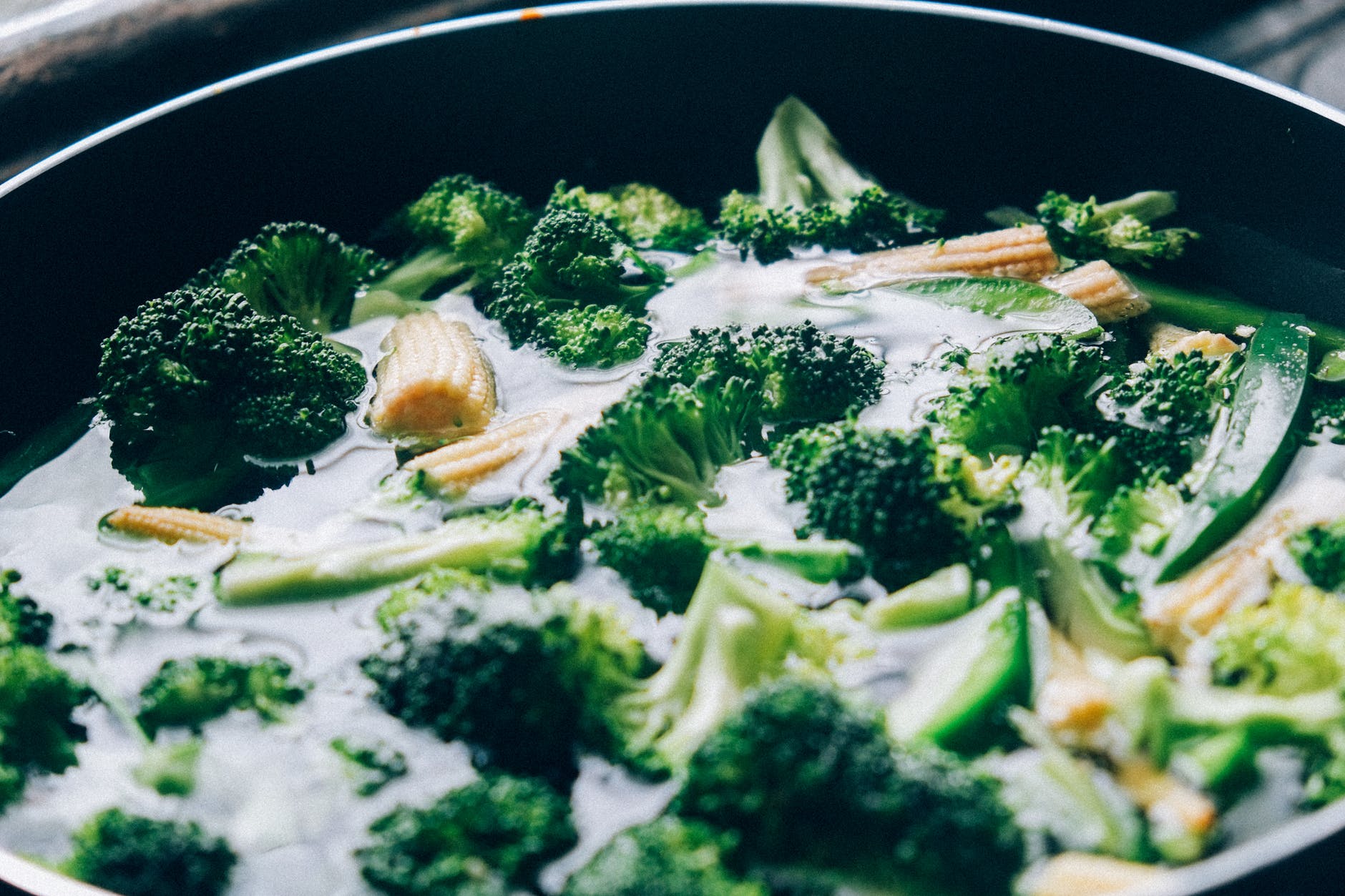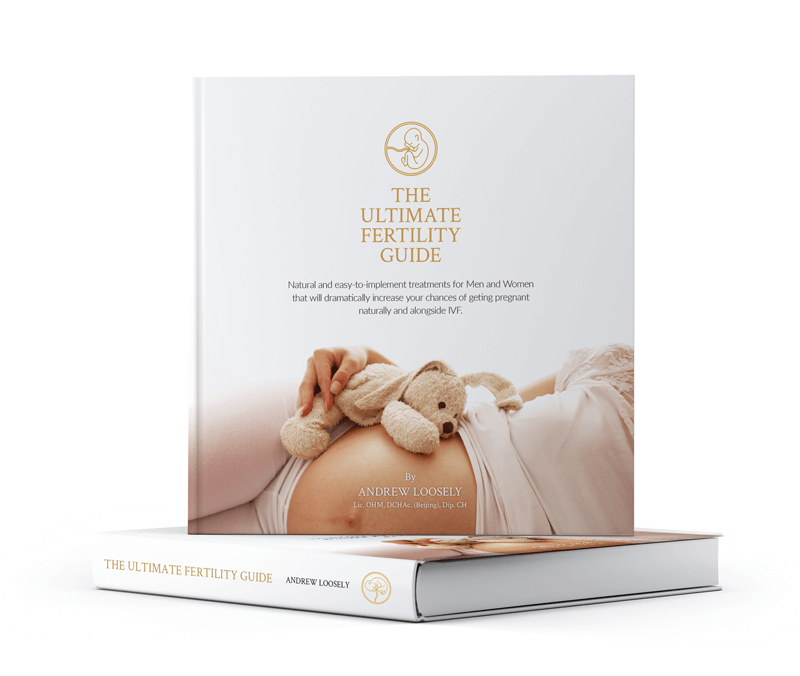Why you should never eat Broccoli raw!

What’s the verdict – should you eat broccoli cooked or raw?
The fertility world is regularly advising that eating raw broccoli and using it in smoothies is better for extra nutrition.
BUT this may not be true.
There’s a key factor that these advisors are missing, and it’s causing damage to some people’s health.
Broccoli, along with many other cruciferous vegetables, such as kale, cabbage, brussel sprouts and pak choi (to name a few), contain a natural pesticide called a goitrogen. This is something produced by the plant to protect itself against pests. It is not a pesticide added by humans.
Goitrogens, even at low levels, interfere with your body’s ability to use Iodine and this has a detrimental effect on the thyroid gland.
As you may already know, the thyroid is fundamental in male and female fertility and general health.
Anyone with existing thyroid issues will quickly see a negative impact from the consumption of raw broccoli or other cruciferous veggies.
And if you don’t have a thyroid issue the goitrogens can lead you in that direction if you regularly eat them raw.
The good news is that you can simply cook the vegetables, which drastically decreases the goitrogen levels and reduces the risk of harm.
Steaming broccoli until properly cooked through reduces the goitrogens by around two thirds. Boiling broccoli for 30-minutes reduces the goitrogens by up to 90%.
Even with the loss of some nutrients during cooking, the overall effect of eating cooked broccoli and other green vegetables is still much healthier for your thyroid and fertility health – compared to eating them raw.
Chinese medicine has talked about this for several hundred years, as it’s recognised that raw foods are much harder to digest.
Regular raw food consumption weakens the digestive system and gut, causing an increase in fluid retention (Dampness in Chinese medicine).
Dampness can lead to an overgrowth of candida and other unwanted organisms, and also causes further complications with the thyroid.
Dampness or fluid retention, along with an existing thyroid condition can often lead to an increased risk of developing a goitre (enlarged area around the neck caused by accumulated fluids around the thyroid and surrounding area).
When broccoli and green vegetables are properly cooked they transform into foods that support your Qi and Blood, which are vital for egg and sperm health.
Cooked broccoli is also useful to keep body fluids circulating during ovulation, especially if you tend to bloat and have water retention at this stage of the cycle.
CHINESE FERTILITY MEDICINE USE IT TO:
- Treat Blood Deficiency
- Qi Stagnation
- Treat Heat
- Treats Dampness
BLOOD DEFICIENCY
Blood deficiency is a Chinese Fertility Medicine term used to describe an imbalance in the quality of the blood.
The blood is responsible for circulating nutrients throughout the body to all of your cells, including egg and sperm cells.
When it is deficient the blood can’t properly nourish the body and certain aspects of health get out of balance.
This can impact egg and sperm health as the deficient blood is unable to transport necessary nutrients to the eggs and sperm – causing a depletion in their quality, quantity, and activity.
If the Blood deficiency reaches a deeper level of imbalance you will see physiological changes in the blood, such as reduced iron, haemoglobin, ferritin, B-vitamins and other nutrients. You may also see changes in the volume and quantity of the blood cells and it’s clotting ability or nature.
Click here to read more about Blood Deficiency
QI STAGNATION:
Qi (pronounced chee) is the Chinese Fertility Medicine word used to describe energy, life force, or vitality inside and outside the body.
Qi must always flow efficiently through the body to properly support the thousands of functions required of the organs and systems every day.
If the flow of Qi slows down it is regarded as being a Qi Stagnation pattern.
This typically results in a variety of symptoms that can lead to stress, mood changes, hormonal imbalance, and other functional symptoms reflecting a lack of circulation in the body.
All of these have the ability to affect your fertility health as the regulation and ‘switching’ of hormones, fluids, energy, blood require a smooth and constant flow of energy to work properly.
Click here to read more about Qi Stagnation:
HEAT
Heat is a pattern of imbalance in Chinese Fertility Medicine that refers to one or more of the following: a feeling of heat in your body, a measured fever, or some type of inflammation typically related to infection.
It presents with signs of over-activity, mood changes, inflammatory issues, discolouration of body fluids, and symptoms of dryness and heat.
Too much heat typically affects the fluid and blood balance of the body and this can impact egg and sperm quality to varying degrees.
Click here to read more about Heat
DAMPNESS
Dampness is the word used in Chinese Fertility Medicine to describe an overabundance of negative types of fluids that have accumulated in the body.
This includes mucus, phlegm, or water accumulation (edema) that build up over time in different areas of the body.
A variety of fertility issues can arise from having too much Dampness including immune disorders, fluid retention, circulatory issues, bacterial and fungal overgrowth, and other inflammatory diseases.
Reducing dampness can take some time, but the physical effects you receive will be worth it!
Click here to read more about Dampness
Key nutrients of Broccoli are:
Vitamin K: An essential nutrient (made of two forms: Vitamin K1 and K2) necessary for responding to injuries, as it regulates normal blood clotting.
By assisting the transportation of calcium throughout the body, Vitamin K may also be helpful for bone health. It may reduce bone loss and decrease the risk of bone fractures and it may also help to prevent calcification of arteries and other soft tissue.
Vitamin K can be particularly useful if you suffer from heavy and/or painful periods as it can help slow down the blood flow and reduce cramping.
Vitamin B9: Also known as Folate or folacin. Mistakenly many people take Folic Acid, which is a synthetic version of Folate that is not recommended due to possible toxicity.
Folate is essential for human growth and development as it encourages normal nerve and brain function. It’s involved in the creation of DNA as well as building of proteins, and many other important functions including the healthy development of your baby’s spinal cord.
Folate has long been known for its protection against spina bifida, but many people don’t realise that it’s also important for their day-to-day health.
During pregnancy folate also supports the growth of the placenta and helps to prevent several types of birth defects, especially those of the brain and spine. Folate is an important nutrient for general and fertility health.
Vitamin C: Vitamin C also known as ascorbic acid and L-ascorbic acid helps to repair and regenerate tissues, help with the absorption of iron, prevent scurvy, and decrease total and LDL (“bad”) cholesterol and triglycerides.
Research shows that vitamin C protects against free radicals due to its antioxidant nature. It also helps neutralize the effects of nitrites (a group of commonly used preservatives), which many people come into contact with daily through processed foods.
For fertility health vitamin C is important in the process of absorption, and also for its ability to support the luteal phase of the menstrual cycle.
Supplement forms of vitamin C are usually inferior compared to natural sources and my advice is to obtain this nutrient from your diet daily through fresh vegetables and fruit.
Vitamin C increases the absorption of iron, and also affects the way calcium is metabolised and stored in your body.
Potassium: an electrolyte that counteracts the effects of sodium (salt), helping to maintain consistent blood pressure.
Fibre: heart-health benefits, such as reducing blood pressure and inflammation. Helps control blood sugar levels and cleanses waste from your intestines – including accumulated hormones.
Season: Broccoli is a well loved and common green vegetable, which can be harvested up until late autumn.
How its typically cooked: Steamed or made into soup (roast is also nice), are the best ways to eat it. Add some red meats, and other green leafy vegetables, and beetroot – and you have a superior blood nourishing meal!
Cautions: If you suffer with Thyroid issues you should avoid raw broccoli (or any other raw green vegetables as they will further disrupt the Thyroid function. Avoid smoothies or juices with these ☺ )
Disclaimer: https://naturalfertilityexpert.com/disclaimer/
NEED MORE HELP?

GRAB YOUR FREE E-COPY OF MY #1 BOOK (3rd Edition)
THE ULTIMATE FERTILITY GUIDE
Claim your free guide to discover the 3 steps that could dramatically speed up your journey to having your baby!
Unsubscribe any time. Your privacy is important to us and we never share your details. Once signed up you’ll also receive helpful fertility tips emails, to give you expert support on your journey. Here’s our Privacy Policy.
ANDREW LOOSELY
The Natural Fertility Expert
Fertility at 40+
© 1998-2024 Andrew Loosely - United Kingdom
